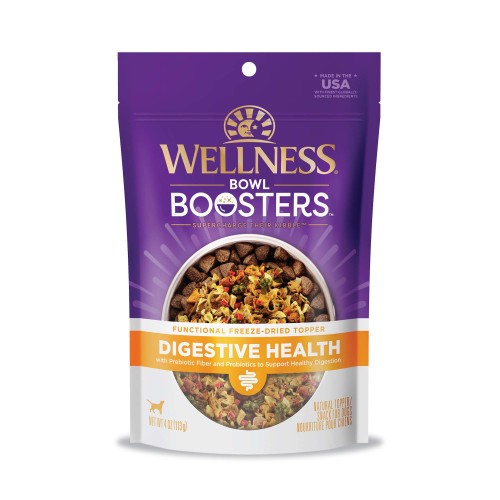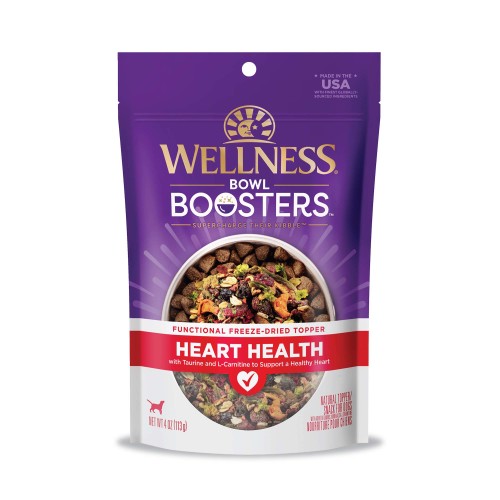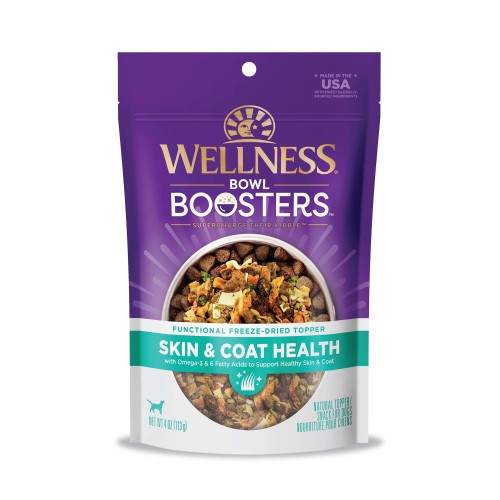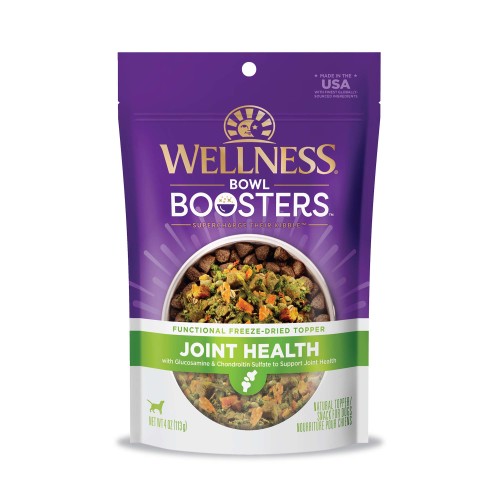May 11, 2023
The Best Allergy Nutrition Support For Dogs
Allergy Support for Dogs
Our dogs provide us with endless hours of entertainment, companionship, and love, and ask for very little in return. So, when we see them struggle with allergies, whether in the form of regular gut upset, or we hear them scratching themselves raw all night long, it’s no wonder we want to do anything to help them feel more comfortable in their own bodies. Providing proper allergy support for your dog plays an important role in keeping them comfortable.
Discussing Allergy Support for Dogs With Your Vet
It is always recommended to discuss any health concerns you have with your veterinarian and pets’ health care team to ensure you are addressing any problems appropriately. The first things to consider are the underlying causes of allergy. The main causes are contact allergies, insect allergies, environmental allergies (also known as ‘atopy’), and food allergies. Contact allergies arise from just that – skin contact with an allergen. Although rare in dogs, the irritant could be something like a laundry detergent that was used on the dog’s bedding, a floor polish that they laid on, or a shampoo or topical spray used on their fur or directly on the skin. Environmental allergies can be seasonal or non-seasonal and can be a reaction to tree pollen, grasses, dust, dander, or food storage mites, as examples. Insect related allergies are ones like a flea bite allergy or even an allergic reaction to a mosquito or fly bite.
Food allergic dermatitis occurs when a food allergen induces an immune-mediated reaction in the body. This usually occurs after the dog has eaten the allergen, usually protein, over a longer period (typically years) and the most typical sign of a problem is itching or chewing at themselves, but signs can also be in the form of gut upset, such as bloating, abdominal discomfort, and diarrhea. Food allergies are seen year round regardless of season and in 20-30% of the cases, there is another concurrent allergy such as flea allergic dermatitis, or atopy. Indeed, true food allergies are not as common as one might think, and if you are concerned your dog has a food allergy it is recommended you discuss with your veterinarian and develop a plan to determine what specific foods are problematic.
Providing The Best Allergy Support For Dogs
Some nutrients are known to be beneficial and can help support healthy skin and coat. In fact, having an unhealthy skin barrier can lead to further health impacts, as the skin and coat play a crucial role in protecting the dog from the outside world. Nutrients known to be important to skin health and help maintain the strength of the skin barrier include the following: protein, the omega fatty acids linoleic acid (LA), docosahexaenoic acid (DHA), and eicosapentaenoic acid (EPA), the minerals zinc and copper, as well as many vitamins including fat soluble vitamins A, D, and E, and water soluble vitamins riboflavin (B2), niacin (B3), and biotin (B7). Ensuring your dog is eating a complete and balanced diet will help to provide your dog all the necessary nutrients to support skin and coat health. There is also evidence to support a healthy gut microbiome can help improve overall health including skin and coat, thus fiber may also be considered a helpful nutrient in the management of allergies.
Managing Food Allergies
While food allergies may not be all that common, when allergies are present, management may require nutritional adjustment as well. Food allergies are both identified and treated with an elimination diet trial. This diet trial will hopefully eliminate all potential allergens which would resolve the itching and skin irritation allowing us to identify food as the cause. These diet trials use either a novel diet or a hydrolyzed diet and are best performed with your veterinarian’s guidance and input.
Novel diets use one protein source and one carbohydrate source which the pet has hopefully not been exposed to in the past therefore, the body won’t recognize the proteins in the carbohydrate or protein source as an allergen and will not mount an allergic response. Alternatively, a hydrolyzed diet can be used. These diets use a protein source that has previously been enzymatically broken down into short amino acid chains which the body shouldn’t be able to recognize as an allergen. Since these are short amino acid chains and no longer recognized as an allergen the initial protein source could theoretically be anything. For instance, even if a dog has a chicken allergy, a hydrolyzed chicken diet could be used to manage the allergy because the hydrolyzed chicken is no longer identified by the body as chicken. Hydrolyzed diets also typically use a novel carbohydrate source but only the starch portion which should be devoid of protein and again, not mount an allergic response.
Allergy Food, Vitamins & Supplements for Dogs
When considering possible foods to feed your dog with allergies that provide supportive nutrition, considering a complete and balanced diet with limited ingredients such as the Wellness Simple line or a diet with a supportive and similar protein base such as an all fish-based protein diet like Wellness Core Ocean may be good options. These diets include ingredients that provide skin supporting nutrients such as the anti-inflammatory omega-3 fatty acids EPA and DHA which come from marine sources, as well as the essential omega-6 fatty acid LA which helps to support a healthy skin barrier. In addition, other skin and gut support nutrients such as the antioxidant vitamin E, and minerals zinc and copper are included to ensure balanced nutrition to help with allergy support for your dog.
Some dogs, even when on a complete and balanced diet, may benefit from additional supportive care with the supplementation of functional treats or supplements that provide enhanced amounts of skin support nutrients. A supplement like Wellness Supplement Shield Immune Health & Seasonal Allergy Support Chews can provide additional skin support by boosting the nutrients known to impact skin and coat health such as EPA & DHA, vitamins A, D, E, B2, B3, and B7. In addition, both prebiotics and probiotics are included to provide gastrointestinal support and help strengthen your dog’s microbiome. This can be a great way to leverage vitamins and supplements to provide allergy support for your dog.
Final Thoughts On A Hypoallergenic Diet
In summary, making sure your dog is happy and healthy requires complete and balanced nutrition that provides all the nutrients your dog needs in a tasty and digestible food. For dogs with allergies, providing allergy support by selecting diets that are formulated with properties that can help further support gut or skin health can be beneficial. Having regular health checks performed by your veterinarian, and addressing concerns as they arise will also help to keep your pup feeling their best. Providing treats in appropriate amounts that help support your dogs skin health, can also go a long way to helping your dogs’ skin and coat shine!





